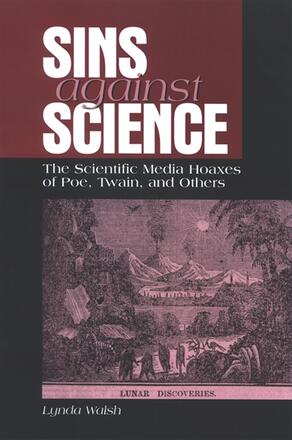
Sins against Science
The Scientific Media Hoaxes of Poe, Twain, and Others
Recounts the fake news stories, written from 1830 to 1880, about scientific and technological discoveries, and the effect these hoaxes had on readers and their trust in science.
Description
Lynda Walsh explores a provocative era in American history—the proliferation of fake news stories about scientific and technological discoveries from 1830 to 1880. These hoaxes, which fooled thousands of readers, offer a first-hand look at an intriguing guerilla tactic in the historical struggle between arts and sciences in America. Focusing on the hoaxes of Richard Adams Locke, Edgar Allan Poe, Mark Twain, and Dan De Quille, the author combines rhetorical hermeneutics, linguistic pragmatics, and reader-response theory to answer three primary questions: How did the hoaxes work? What were the hoaxers trying to accomplish? And—what is a hoax?
Lynda Walsh is Assistant Professor of English at the New Mexico Institute of Mining and Technology.